- Home
- Vince Flynn
Kill Shot Page 3
Kill Shot Read online
Page 3
He looked down at the Libyan. The second shot had enlarged the dime-sized hole by half. Death was instantaneous, which meant that the snoring had stopped. In the new silence of the room, Rapp’s eyes darted to the jumbled pile on the far side of the bed, and after three seconds of no movement he dropped to his knee and reached around the back of the nightstand. The fingertips of his right hand had just found what he was looking for when he felt the floor beneath him tremble. The vibration was intense enough that Rapp knew it could be caused only by one thing. He withdrew his hand, leaving the listening device where it was, and rose enough so that he could look over the bed to the hotel room’s door.
There, in the thin strip of light under the door, Rapp saw one shadow pass and then another. He cursed to himself, and was about to make a break toward the balcony, when the door crashed open, flooding the suite with a band of light. As Rapp began to drop, he saw the distinct black barrel of a submachine gun, and then a bright muzzle flash.
CHAPTER 2
THE room smelled. It was a brew of sweat and other odors given off by men stuffed for too long in close quarters. It was also tinged with a hint of fear. That troubled Samir Fadi deeply even though he understood the cause. They were hunting a ghost—someone who had silently and steadily begun killing their brethren nearly a year ago. Samir could not change their situation, nor could he change the facts. The longer the men waited the more bored they became, and the more bored they became, the more their minds wandered. It was not difficult to see it in their young faces as the gung-ho nature of their operation dissipated under the strain of monotony. They were each recalculating their chances for success, and the odds were moving in the wrong direction.
Samir did not fall prey to this weakness. They would meet this ghost with overwhelming firepower and they would rid their cause of a major problem, and he would be celebrated as a hero. That was no small thing for Samir. He had felt for a very long time that Allah had magnificent plans for him, and when he returned from this operation with the head of the assassin, he would bask in the glory he so rightly deserved.
Samir had been the lucky one to stumble upon the beginnings of a solution. They had all been shocked to hear that this was the work of one man. Samir had asked the most basic question, “How do you find and kill an assassin whom no one knows?” They had worked their sources across Europe and in Moscow and come up with nothing. Some on the council continued to argue that it couldn’t be one man. It had to be multiple teams operating simultaneously. The Spaniard, however, held his ground. His source was above reproach. In addition to the source, the Spaniard had gotten his hands on some of the official police reports that were filed after the various murders. The reports all pointed to the fact that it was the work of one man. A support network and funding, to be sure, but it was one man doing the killing.
The answer to Samir’s question was every bit as simple. The Spaniard told the council that they needed to set a trap. Samir had been cut out of the following sessions. Only the Executive Council was allowed to weigh in on that decision, but Samir got the gist of it. They needed a plump target to lure the assassin out into the open. That plump target was now sleeping across the hall and three doors down. Samir was not told the identity of the bait until seven days earlier, when he and his men arrived in Vienna. For four days, they had sat stuffed in a hotel room, slightly smaller than this one, and then on that fourth morning, they pulled out and left for France. They all traveled alone, dressed in suits, but on the same train. When they’d arrived in Paris they were met by the Spaniard and a trusted brother who had prepped the hotel room with weapons and surveillance equipment.
The bait had arrived by plane later that day, and after a brief lunch at the hotel, he left to do some shopping. One by one, at random intervals, Samir’s men entered the hotel and checked into different rooms on different floors. By nightfall, when the bait was out having dinner with a prostitute, they had all converged on the single room down the hall. Silenced submachine guns were waiting for them. The Spaniard and Samir both agreed that the assassin would strike at night. Most likely in the predawn hours, and it would be in the hotel suite, where he could control the situation. Samir saw the wisdom but felt the window of opportunity was too small. From sundown to sunup, he had his men on high alert. During the day, two men were always on alert, just in case. The other three men would head back to their rooms, order room service, and sleep.
After four nights in Vienna and now three in Paris, Samir could tell that the men were beginning to doubt the wisdom of the operation. The idea that they would dare question his authority upset him a great deal. He had chosen each man for his discipline and skills and above all else absolute obedience to his orders. They were told up front that this mission would require a great deal of patience. That it was likely to take several trips before the assassin showed up, but Samir and the Spaniard were adamant. The assassin would show up, and when he did, they would be ready to pounce.
Over the course of the last two months, Samir felt that he had gotten to know this assassin. He was a man of unknown nationality who had penetrated their organization and begun methodically killing off the financiers, arms dealers, foot soldiers, and facilitators who allowed their organization and sister organizations to move about Europe, the Middle East, and North Africa. Thanks to the Spaniard, Samir had studied five of the kills in detail and was sure he understood how the assassin thought. He was ready to face him; he just wished it would be sooner rather than later.
Samir checked his watch, looked around the room, and shook his head in disgust. There were two twin beds, and two of his men were lying on them in their street clothes, their heads propped up against the headboards. Both had dozed off, their silenced weapons resting on their laps. A third man was on a chair by the door, leaned over, with his face buried in his hands. Samir couldn’t tell, but he wouldn’t be surprised if his eyes were closed as well. The fourth man at least was sitting attentively in front of the two monitors. They provided two angles of the room down the hall. He was also wearing headphones. The first few nights they had all eagerly taken turns listening and watching while the lumpy Libyan had sex with a prostitute. Seven nights into it, the novelty had worn off. Even so, Samir did note that despite the Libyan’s apparent bad health he was extremely virile.
It caused Samir to wonder if he could do the same, and he was still not thirty. Samir was not a pious man when it came to his faith. He was a Muslim, but he left the holy prostrations to those who were more devout. He saw himself as a soldier tasked with taking Islam’s fight to the dirty Jews and the rest of the decadent West. To blend in, he needed to act like them, and if that meant drinking their liquor and sleeping with their women, then so be it. As long as insinuating himself into their culture would allow him to kill more of them, he was sure Allah would reward him.
Samir stood and stretched his neck to one side and then the other. He was somewhere in the neighborhood of five feet ten inches tall and extremely proud of his physique. There wasn’t an ounce of fat on his perfectly sculpted frame. He wore his raven-black hair midway between his ears and his neck in the fashion that was so popular with the French youth. There was a mirror over the bed and he paused to study his reflection before brushing his hair back behind each ear. He looked down at his chest under the tight white T-shirt and nodded his approval. He’d done thousands of pushups to maintain his rock-hard muscles. It made him think that it would be a good idea to have the men get up and do some pushups to get their blood flowing. By chance, he glanced at the surveillance monitors and something caught his eye. He moved quickly to the screens and shook the man who was tasked with watching them.
“Muhammad,” Samir hissed, “did you see that?”
There on the black-and-white screen a shadowy figure moved across the suite. Samir felt his throat tighten. The assassin was here. Samir turned and slapped the feet of the men on the beds. Restraining himself from yelling, he said, “He’s here. Get up, you fools.” Samir grabbed his sile
nced submachine gun and lined his men up, slapping and shoving them into place. Within seconds, they were in position at the door.
Samir’s heart was racing, and he could tell by the wide-eyed expressions of his men that they were going through the same thing. He placed his hand on the door handle and nodded once before yanking it open. The men rushed past him exactly as they’d practiced, into the hallway, running toward the suite on the right. Samir fell in behind the last man. Up ahead he heard someone stumble and watched as Jamir caught himself before he fell. Samir cursed himself for not waking them sooner and getting them ready. He knew the assassin would strike in the predawn hours. He should have had the men ready. At least two of them had just been yanked from their dreams. He hoped they remembered to flip their safeties off before they went in. Samir took a wobbly step and realized he’d forgotten to take his own weapon off safety.
Abdul was first in line and had practiced the next move. Samir had told him not to hesitate. “Do not worry about the rest of us. Kick the door in and start firing. We will be right behind you.”
Samir was crouched near the wall, the thick black muzzle of his silencer pointed up. His finger was on the trigger, and as he watched Abdul step back to kick the door he felt a dry lump in his throat. He swallowed hard, and then the lock busted through the frame and the door flew open. Samir waited a second and then pushed his brother to join the fight. Still in the hallway, he heard the steady spit of the guns in front of him unleashing their deadly volley on the assassin, and a wolfish grin spread across his face. There was no way the killer would survive this onslaught. After tonight, Samir would become a legend among his peers.
CHAPTER 3
RAPP took cover behind the bed and its heavy platform. The distinctive spit of bullets leaving the end of a suppressor at a high rate was followed by the mirror above the bed shattering with a crash. After that, bullets began thudding into the walls, furniture, and mattress. Rapp pressed himself into the floor as he tried to count the shots. The steady thumping of one gun being fired was quickly joined by at least two more. Rapp stole a quick look at the balcony a mere six steps away and fought the urge to bolt. With this much lead flying, he would never make it. Plaster was raining down on him and he could hear bullets impacting the mattress just a few inches above his head.
Rapp pressed himself to the floor, taking cover behind the carpeted platform that elevated the bed, and told himself not to panic. His only avenue of escape was cut off, and he was cornered and outgunned. As the hail of bullets continued around him, he was reminded of something his trainer, Stan Hurley, had once said. It took Rapp a half second before he realized it was his only chance. Grabbing a spare magazine from under his left arm, he focused on the area past the foot of the bed and waited for his chance.
Even with the suppressors there was a great deal of noise, as there was a near continuous spit of bullets flying and the metallic clank of slides blowing back and slamming forward. It was considerably quieter than normal gunshots, but by no means silent. Rapp guessed they were using MP5s, or a close cousin. His mind jumped through the possibilities in a split second. MP5s almost certainly meant thirty-round magazines, and with the weapon’s rate of fire on full automatic a man could burn through all his rounds in a matter of seconds.
One of Rapp’s assets was the ability to slow things down in his mind’s eye. He’d honed it on the lacrosse pitch in high school and college. He could calculate what the other players were going to do and react. When things were tense like this, he could block out the fear and extraneous information, focus on what was important, and slow things down. Panic-induced decisions had a nasty way of leading to bad, or in this case, fatal outcomes. Rapp’s angle and concealment were as good as he could hope for, considering the fact that he’d been caught so off guard, and he used these few seconds to look at the tactical situation from 360 degrees.
The natural mistake was to get so caught up in your situation that you failed to analyze the motives, maneuvers, and talent of your opponent. The motive of this group was clear. They wanted to kill him. As to how they knew he’d be here and how they had avoided detection from the advance team, Rapp would have to search for those answers later. His mind now seized on a critical detail in the blink of an eye. They were not a trained SWAT team. Tactical teams practiced disciplined fire. They didn’t simply enter a room and begin hosing it down with bullets. From that, Rapp discerned a very comforting fact—he could kill them.
Police were off limits. He could maim or physically subdue, but he was forbidden to kill a law enforcement officer. Such were the rules of restraint that were placed on him, and he did not argue. Governments could look the other way when certain unsavory individuals were killed on their soil, but kill an innocent bystander, or worse, a law enforcement officer, and you could create an international incident that would bring the kind of attention that they could not afford.
Rapp realized quickly that these guys were making a big mistake. They assumed their overwhelming firepower would win this battle in the opening salvo, but as Hurley had told Rapp repeatedly, “You never want to blow your wad in the first few seconds of a gunfight. Better to take cover and let the other guy empty his gun.” Taking this several steps further, Hurley and the other instructors forced him to learn how to classify different guns by sound alone, and more important, to keep track of rounds fired.
The latter was hopeless in this situation. Three or more submachine guns firing on full automatic were impossible to count with any accuracy, but at this rate of fire it was pretty much a foregone conclusion that they would all be reloading in the next few seconds. Rapp anticipated what would happen next. He was on the verge of losing his cover. Rather than wait for the first shooter to move far enough into the room and get the angle on him, Rapp would broaden the angle first. He stayed low and crawled forward two feet. With his head near the edge of the foot of the platform, he could now see close to three-quarters of the room. Standing no more than fifteen feet away, he saw his first target.
The man was dressed in jeans and a T-shirt and was in the midst of ejecting a long, curved magazine. Rapp swung his left arm around and shot him once in the face. He kept moving his pistol and found two more targets. One was still firing wildly and the other was reloading. Rapp shot the second man in the nose and the third man in the throat, and then before he could find the next target, bullets began thudding into the carpeting near his face. Rapp yanked his arm back and scurried in reverse for cover. He’d fired five rounds, which meant he had fourteen left in the magazine and two full magazines of eighteen rounds plus his backup gun.
Now was not the time to stay pressed against the floor. If the man or men who were left standing decided to rush him, he’d be toast. Rapp popped up onto one knee and raised the pistol above the bed. Again, firing from left to right he squeezed off six quick shots. On the fifth one, he heard a grunt and knew he’d hit someone in the torso. He moved his muzzle back a few degrees to the left and fired four more shots, and then all was quiet. Rapp paused and then squeezed off his last four shots at the door. He quickly switched out magazines, hit the slide release with his thumb, and seated a fresh round in the chamber. He brought up his gun and took a quick peek over the top of the mattress. There, silhouetted in the doorway, was a stunned man, clutching his belly with both hands. It was time to move.
Rapp stood, and as he took his first step to his left, he saw more movement in the hallway. Staying in a crouch with his gun leveled, he squeezed off one round. He buried it in the man’s chest rather than his head, sending him stumbling over the threshold. A gun appeared in the gap between the door frame and the dying man. Rapp kept moving and squeezing off shots that were splintering the edge of the door frame. When he reached the heavy curtains, he fired one more volley and then pushed through, out onto the balcony. The rope was right in front of him and he dove for it with his right hand while still holding on to his Beretta with his left.
As his gloved hand closed around the rope, he launch
ed himself over the railing. His upper body was clear when he felt a solid punch hit him from behind. Rapp knew at that exact moment that he’d been shot, and his brain became overly focused on the fact that a piece of lead had just blasted its way into his body. The shock drew his attention away from the rope to the pain in his left shoulder, and he began to fall. Desperately, his right hand reached out in search of the black rope as he stared up at the night sky, the hard pavement rushing up to meet him from below.
CHAPTER 4
ABDUL continued straight into the room, sweeping his suppressed rifle from left to right, laying down a steady stream of bullets. Right on his heels, Jamir joined the fight, spraying his bullets in a zigzag pattern. Muhammad was next and then Samir’s brother Habib.
Samir’s feet felt heavy, as if he was suddenly wading through sand. He forced himself to move forward as the gap grew between him and his brother. For all of his bravado and threats of violence, there’d been a sliver of his ego that feared facing this assassin. He did a good job keeping it in check and made sure the men never got a whiff of it, but it weighed on him. As the line of men pressed into the suite, Samir was steadily falling behind. He listened as the hail of bullets reached a fevered pitch—objects crashing and shattering under the fusillade of metal.
Samir suddenly felt woozy. His chest tightened and his vision grew fuzzy at the edges. “Breathe,” he rebuked himself. He was almost to the door now, and he took two deep breaths as he watched his brother enter the room. Samir stopped at the door frame and listened to the barrage of bullets shredding the room. With fresh air in his lungs, he allowed a nervous smile to spread across his face. There was no way the assassin could escape this. “The hunter will become the hunted.” It was a mantra Samir had repeated for months.

 Consent to Kill
Consent to Kill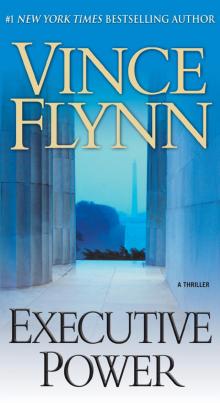 Executive Power
Executive Power Protect and Defend
Protect and Defend Term Limits
Term Limits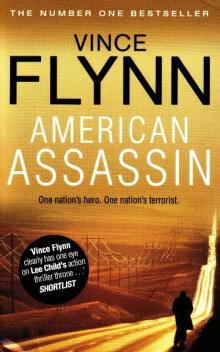 American Assassin
American Assassin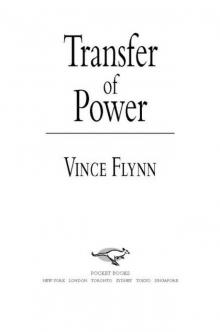 Transfer of Power
Transfer of Power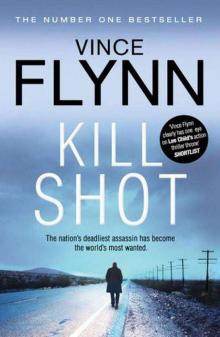 Kill Shot
Kill Shot Vince Flynn Collectors' Edition 2
Vince Flynn Collectors' Edition 2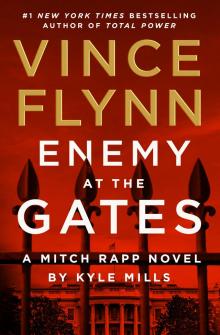 Enemy at the Gates
Enemy at the Gates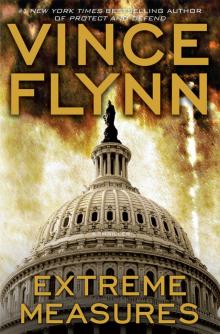 Extreme Measures
Extreme Measures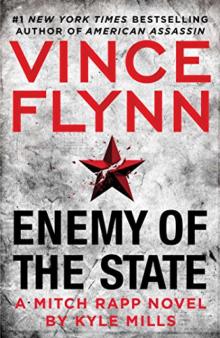 Enemy of the State
Enemy of the State Act of Treason
Act of Treason Pursuit of Honor
Pursuit of Honor The Survivor
The Survivor Separation of Power
Separation of Power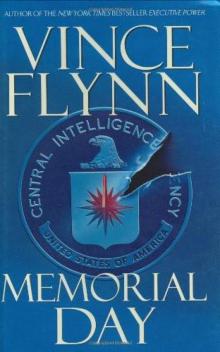 Memorial Day
Memorial Day The Last Man
The Last Man Pursuit of Honor_A Thriller
Pursuit of Honor_A Thriller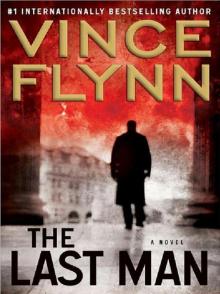 Mitch Rapp 13 - The Last Man
Mitch Rapp 13 - The Last Man Consent to Kill:
Consent to Kill: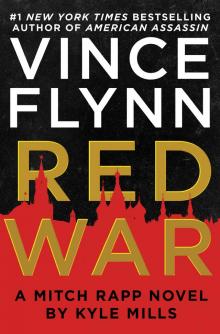 Red War
Red War Mitch Rapp 02 - The Third Option
Mitch Rapp 02 - The Third Option Mitch Rapp 05 - Memorial Day
Mitch Rapp 05 - Memorial Day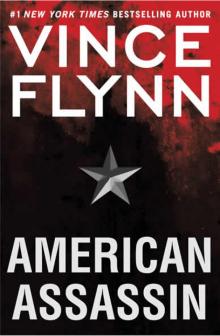 Mitch Rapp 11 - American Assassin
Mitch Rapp 11 - American Assassin Mitch Rapp 14 - The Survivor
Mitch Rapp 14 - The Survivor Mitch Rapp 06 - Consent to Kill
Mitch Rapp 06 - Consent to Kill Term Limits mr-1
Term Limits mr-1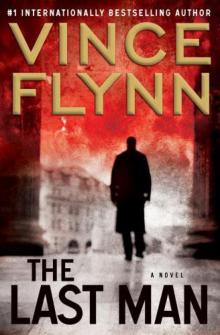 The Last Man mr-13
The Last Man mr-13 Memorial Day mr-5
Memorial Day mr-5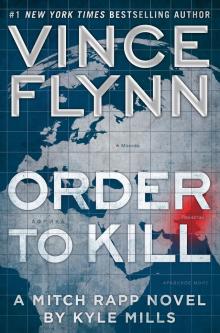 Order to Kill
Order to Kill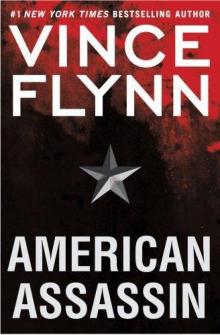 American Assassin: A Thriller
American Assassin: A Thriller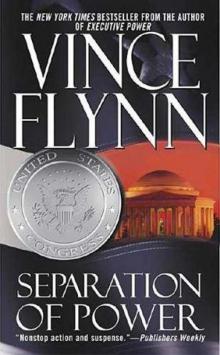 Separation of Power mr-3
Separation of Power mr-3